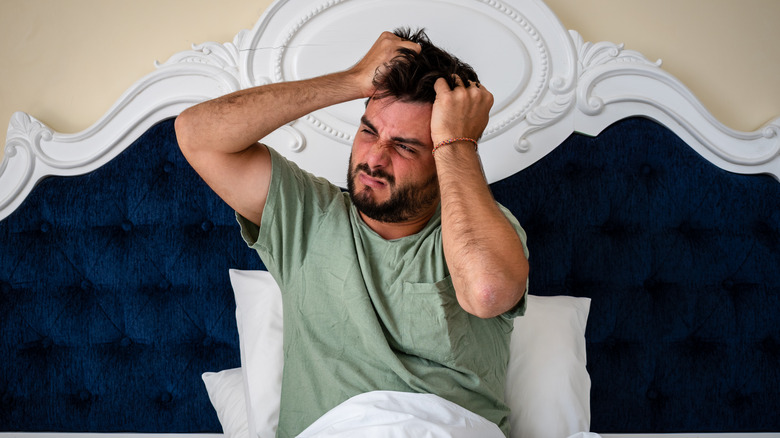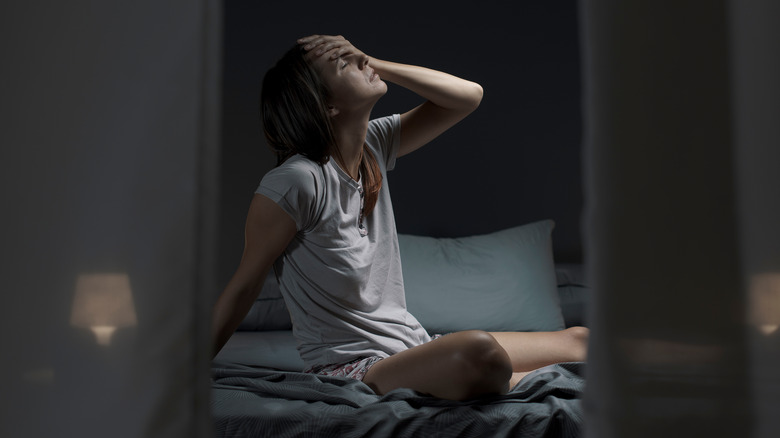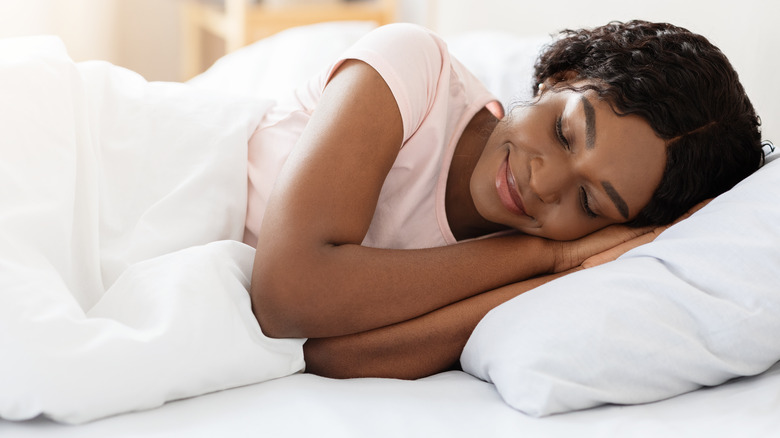What It Means When You Don't Know Where You Are When You Wake Up
If you're a frequent traveler, you may have experienced the sort of confusion wherein you wake up in the middle of the night and forget that you're in a hotel room or Airbnb. You could still be half-asleep and wonder why the window is in a different place than it is in your own home. You then wake up a little more, perhaps sit up, and realize that you're in a completely different location.
Sometimes, when you turn down the covers in your own bed and finally drift to sleep, you suddenly wake up. You appear drunk, even though you haven't had a sip of alcohol. Your partner tells you that you're mumbling but can't make out what you're saying. Your eyes might even be open, so your partner tries to talk to you as if you're awake. You then go back to sleep after a few minutes and sleep fine until the next morning. When your partner tells you about this strange episode, you have no recollection of what occurred.
This is a sleep disorder called confusional arousal, and it's one of several parasomnias that could occur during the first half of your sleep (per Cleveland Clinic).
Why confusional arousals occur
Although confusional arousals are less common in adulthood than in childhood, they rank second behind sleepwalking among parasomnias, according to a 2018 article in Cureus. A little more than 18% of people might experience confusional arousal at least once in their lifetime. Many conditions can trigger an episode of confusional arousal, such as sleep deprivation, sleep apnea, pain, or fever. Substances like alcohol or sedatives might also cause confusional arousal. They can also occur with trauma, psychiatric disorders, or Parkinson's disease. The American Academy of Sleep Medicine says people who work nights or rotating shifts might be more likely to experience confusional arousal.
Confusional arousals will occur during one of the stages of non-rapid eye movement (non-REM) sleep. That's why you could experience them during the first half of the night, when you're more likely to experience longer stages of non-REM sleep. Sleepwalking is another type of non-REM parasomnia where you get out of bed, but people experiencing confusional arousals might not get out of bed at all. Because you dream only during your REM sleep, non-REM parasomnias like confusional arousals aren't associated with dreams (per Cleveland Clinic).
Treating confusional arousal
If you're experiencing confusional arousals, your doctor will look at possible triggers such as your patterns of sleep, medical conditions, any history of substance abuse, and current medications. To diagnose possible parasomnias and coexisting sleep disorders (such as sleep apnea), you might also need to undergo an overnight sleep study. Your doctor might first treat the other sleep disorder or adjust your medication if these trigger your confusional arousals (per Cureus).
Because sleeping problems can cause confusional arousals, the Sleep Foundation suggests adopting habits to encourage restful sleep. If possible, try to keep your bedtime and wake-up time consistent every day, and avoid taking naps after 3 p.m. Exercise during the day will also help you get a better night's sleep. It's also a good idea to avoid caffeine late in the day and alcohol before bed. Even though people don't often leave their beds when they're experiencing confusional arousal, be sure to keep your bedroom safe by padding any furniture near the bed. You might also want to keep any weapons or dangerous items out of reach of your bed. If you have small children, avoid allowing them in your bed.



